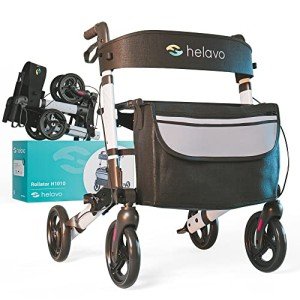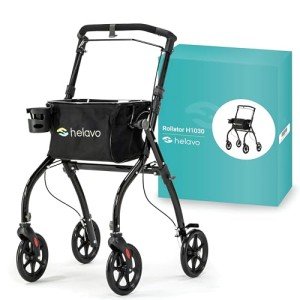Nine Things That Your Parent Taught You About Medical-Grade Walker
페이지 정보
작성자 Lesley 작성일 25-10-06 03:24 조회 18 댓글 0본문

Understanding Medical-Grade Walkers: A Comprehensive Guide
Medical-grade walkers are important mobility help designed for people who require assistance in Walking Support due to injury, surgical treatment, or age-related issues. Unlike standard walkers, medical-grade walkers are made with higher quality materials and advanced features that cater to the specific needs of patients and doctor. This post will check out the numerous kinds of medical-grade walkers, their benefits, features, and essential factors to consider when selecting one. We will likewise resolve some frequently asked questions to help readers make educated decisions.
Types of Medical-Grade Walkers
When it concerns mobility aids, understanding the various kinds of walkers offered can assist users find the best fit for their requirements. Here are the most typical types of medical-grade walkers:

| Type of Walker | Description | Suitable For |
|---|---|---|
| Standard Walker | Generally made from aluminum and featuring four legs, standard walkers offer tough support but need lifting to progress. | Users with strength in their arms |
| Two-Wheeled Walker | Comparable to basic walkers, but with two wheels on the front legs, permitting easy motion without requiring total lifting. | Users who have some mobility capabilities |
| Four-Wheeled Stable 4-Wheel Walker | Incorporating four wheels, these walkers typically come with a seat and handbrakes, making them easy to maneuver over longer distances. | Users who might require to rest regularly |
| Rollator Walker | A type of four-wheeled Handicapped Walker developed for indoor and outdoor usage, featuring a seat and storage bag for convenience. | Active users who need to handle fatigue |
| Knees Walker | Created for individuals with injuries to the lower extremities, this walker uses a padded platform for resting the knee while propelling forward. | Users recuperating from foot or ankle surgical treatment |
Key Features of Medical-Grade Walkers
Medical-grade walkers are developed with different features that boost functionality, security, and user comfort. When choosing a walker, it's essential to search for the following:
1. Adjustable Height
- Customizing walker height is essential for user convenience and security. Walkers need to provide several height settings to fit private needs.
2. Weight Capacity
- Always inspect the weight limit of a walker. Medical-grade walkers usually support a higher weight capacity than standard walkers, making sure toughness and stability.
3. Brake System
- For those considering four-wheeled walkers or rollators, a responsive brake system is essential. It enables safety when stopping or resting and prevents unwanted movement.
4. Storage Options
- Many medical-grade walkers featured attached baskets or bags for carrying individual items, boosting practicality for users who may desire to keep their hands free.
5. Mobility Accessories
- Some walkers can be outfitted with extra devices such as cup holders, trays, and walking canes to improve mobility and convenience.
6. Portability
- Lightweight designs and easy folding mechanisms enable convenient transport and storage, making it simpler for users to travel or visit healthcare centers.
Benefits of Medical-Grade Walkers
Medical-grade walkers provide numerous benefits to users, supporting their mobility, safety, and total quality of life. Here are some essential benefits:
Enhanced Safety
- The included support from a medical-grade walker offers stability, lowering the threat of falls, specifically for elderly users or those recovering from surgery.
Increased Independence
- Individuals utilizing walkers can traverse their environment with more confidence, permitting them to engage individually in daily activities.
Post-Surgical Recovery Support
- Medical-grade walkers are indispensable in rehab settings, as they assist patients in restoring mobility without jeopardizing safety.
Enhanced Comfort
- Features such as padded grips and adjustable heights make sure that users can walk conveniently and without strain on their joints.
Social Engagement
- With improved mobility, people can participate in social activities, promoting psychological well-being and reducing sensations of isolation.
Choosing the Right Medical-Grade Walker
When choosing a medical-grade walker, numerous considerations can help guarantee that the most appropriate design is picked:
Individual Health Needs: Consulting with a health care expert can help determine the best kind of walker based upon the person's medical condition.
Environment: Consider where the Top-Rated Walker will be utilized most often (i.e., indoors vs. outdoors). This will influence the option between a basic walker and a Premium Rollator Walker.
Budget: Prices for medical-grade walkers can differ commonly. It's important to assess features versus spending plan constraints to find an ideal option without compromising quality.
Caretaker Input: Input from caregivers or member of the family can also be valuable when assessing the usability and handling of the walker.
FAQs About Medical-Grade Walkers
Q1: How do I understand if a medical-grade walker is the right option for me?
A1: It's best to seek advice from a health care service provider who can examine your specific requirements and suggest a walker that matches your condition.
Q2: Can I personalize the walker?
A2: Many medical-grade walkers offer adjustable elements, such as height and seat choices, while others may support extra devices.
Q3: How do I correctly preserve my walker?
A3: Regularly look for any loose parts, clean any dirt accumulation, and make sure that the wheels and brakes are working properly for safety.
Q4: Is it safe to utilize a walker on stairs?
A4: Generally, using a walker on stairs is not encouraged. It's crucial to seek assistance and engage in safer options when browsing stairs.
Q5: Can medical-grade walkers be covered by insurance?
A5: Many insurance coverage strategies provide some protection for medical-grade walkers. Consult your provider about your specific policy and eligibility.
Medical-grade walkers are transformative mobility aids that promote self-reliance and safety for people with physical challenges. By understanding the various types of walkers available, their features, advantages, and how to pick the ideal one, users can be much better equipped to make educated decisions about their mobility requires. As constantly, consultation with a healthcare specialist is vital in finding a walker that takes full advantage of security and comfort. Whether for recovery or ongoing mobility support, the ideal walker can substantially boost one's lifestyle.
- 이전글 20 Trailblazers Leading The Way In Order Counterfeit Money
- 다음글 Why Theory Test For Driver's License B Austria Isn't As Easy As You Imagine
댓글목록 0
등록된 댓글이 없습니다.
